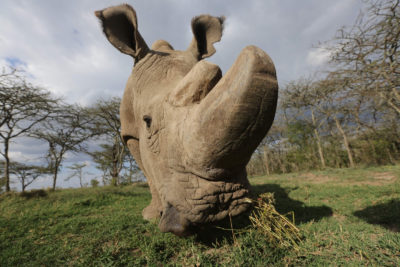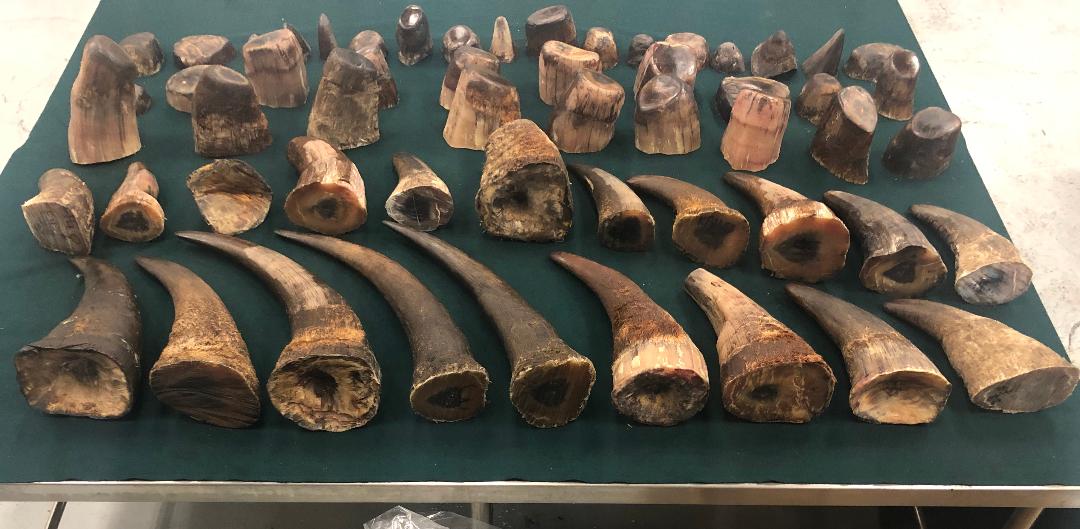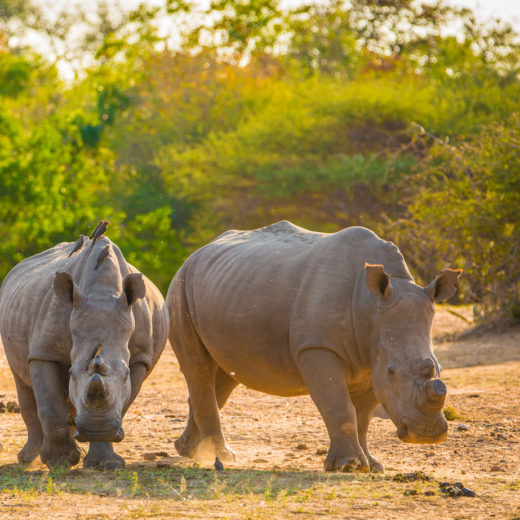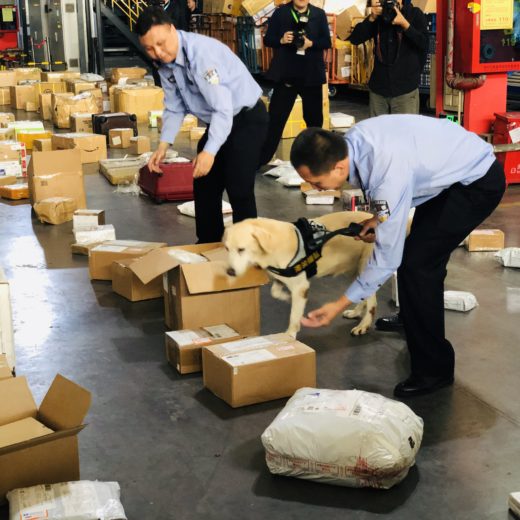
With an increasing trend of major wildlife smuggling passing through Hong Kong SAR and last week’s record seizure of rhino horn en route from South Africa to Malaysia, Hong Kong SAR Legislator Elizabeth Quat called on her government to step up its approach by investigating wildlife crime under the Organized and Serious Crimes Ordinance, which would allow authorities investigate international crime syndicates rather than just seize products.
“I hope that the [Legislative Council] Security Panel will follow up on the incident and ask the Government to include illegal smuggling of wild animals and plants into the Organized and Serious Crimes Ordinance and to require law enforcement agencies to step up their efforts to crack down on the heads of criminal groups that smuggle wildlife,” Quat said in an April 7 statement.
Last week, Hong Kong SAR customs seized 82.5 kilograms of suspected rhino horn and rhinoceros horn cuts with a market value of about $2 million USD – the most in five years. The case was referred to the Agriculture, Fisheries and Conservation Department, which means authorities will not necessarily investigate and prosecute criminal syndicates and networks that smuggle wildlife.


Most smuggling offenses in Hong Kong SAR are now prosecuted under the Protection of Endangered Species of Animals and Plants Ordinance (Cap 586). But under Schedule 1 of OSCO, investigators could look into areas such as money laundering regarding wildlife crime, whether the offense occurs inside or outside Hong Kong SAR. Since international crime syndicates commit most wildlife crimes, the additional investigative tools would help authorities better connect the dots and prosecute crime bosses.
“Hong Kong SAR has treated these offenses almost like a parking ticket when what’s needed is an investigation to find out who’s behind the shipments, both buyers and sellers and to target ‘kingpins’ rather than ‘mules.’ Ms. Quat’s proposal to include wildlife offenses under Schedule 1 of OSCO makes complete sense,” said WildAid CEO Peter Knights. “Only by reducing demand for rhino horn and giving authorities the power to investigate crime bosses can we save rhinos.”
Hong Kong SAR is a global hub for trafficking ivory, rhino horn, shark fin, pangolin scales, and other wildlife products. In the past five years alone, Hong Kong SAR has seized illegal ivory, pangolin scales and rhino horn smuggled goods, the equivalent of hunting 3,000 elephants, 97,000 pangolins and 51 rhinos.
As part of its efforts to reduce consumer demand for these animal products, WildAid has placed hundreds of billboards featuring well-known celebrities such as Jay Chou, Yao Ming, and Bowie Wu throughout airports, subways, buses, and shopping centers across Hong Kong SAR.
Bans on the trade of rhino horn in China including Hong Kong SAR and Taiwan, as well as Singapore, combined with increased public awareness campaigns, have reduced demand for rhino horn and recent reports indicate poaching has decreased by 25% in South Africa, but still, almost 1,000 rhinos are killed each year for their horns.
Stay in touch and get the latest WildAid updates.
SIGN UPAbout WildAid
WildAid is a non-profit organization with a mission to protect wildlife from illegal trade and other imminent threats. While most wildlife conservation groups focus on protecting animals from poaching, WildAid primarily works to reduce global consumption of wildlife products such as elephant ivory, rhino horn and shark fin soup. With an unrivaled portfolio of celebrity ambassadors and a global network of media partners, WildAid leverages more than $308 million in annual pro-bono media support with a simple message: When the Buying Stops, the Killing Can Too.
Journalists on deadline may email communications@wildaid.org


